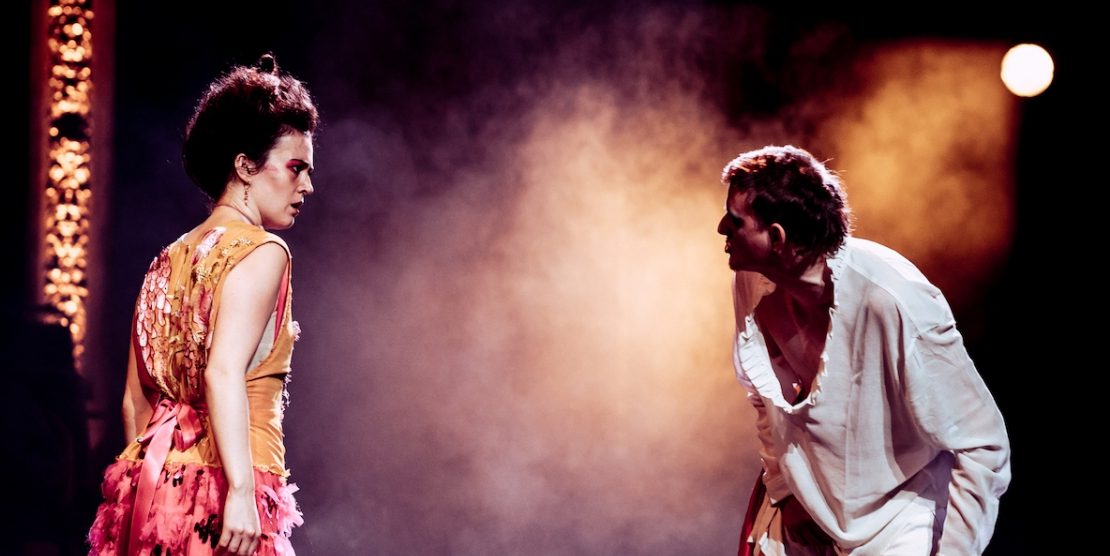You might have heard the story about the man who dreams he is a butterfly. Or is it a butterfly who dreams he is a man? Who can tell, really, when we are dreaming and when we are awake, and would it matter, even if we could? Shouldn’t we strive to do good in our dreams as much as in our realities?
This is a central point in Pedro Calderón’s Life Is A Dream, now playing at Edinburgh’s Royal Lyceum Theatre. The Lyceum hosted several shows during 2021’s International Festival, but this is the start of the theatre’s first full in-person season after months of closure, adaptation and uncertainty.
What a pleasure it is to be back in its glittering interior. We watch the actors complete their final preparations in full view of the audience and delineate their stage with chalk (the play is performed in the round, with audience members sitting on the extended stage in the Lyceum’s new configuration) like magicians drawing out a magic circle.
The tale they have to tell concerns prince Segismundo (Lorn Macdonald), condemned to a life in chains after his mother, Queen Basilio (Alison Peebles) sees visions foretelling he will be a monster if allowed to rule. As her reign comes to an end, Basilio relents, and allows Segismundo the chance to prove her wrong. Still wary of the prophecy, she plants the idea in Segismundo’s head that his fabulous reversal in fortunes may just be a dream, allowing her to successfully re-imprison him when he behaves as prophesied.
Whether Segismundo would have behaved quite so appallingly had he not been locked in a prison all his life is a crucial point. Is his nature the consequence of the choices of others or is it truly predestined from the start? After the last 18 months, filled with uncertainty and conflict, it is fitting that The Lyceum’s season opens with a play defined by dilemmas and dualities like this. It deals with wakefulness and dreaming, of course, but also questions of free will or predestination, pride or humility, duty or familial love.
The cast and director Wils Wilson manage such themes impressively lightly, not necessarily an easy task for a seventeenth-century play dealing with fundamental matters of the human condition. If some of the humour and fourth wall breaking feels a little heavy-handed and contributes to a sometimes-uneven tone, the desire to foster as enjoyable an atmosphere as possible is understandable, and the cast are generally a charismatic watch.
Lorn Macdonald drains himself as he drives much of the play with his energetic performance. He veers from a bestial stalking of the stage – part boar, part wolf, part ape, part man – to philosophising on the differences between wakefulness and dreaming. Anna Russell-Martin provides a strong parallel to Segismundo, also wronged, also feeling out her power and searching for redemption.
At some point during the last 18 months, many of us probably wondered when we would wake up from the dreadful nightmare the world seemed to have become. Of course, for many, the world was no blissful dream even before Covid struck. Life Is A Dream challenges us all to live in the present and to do our best to make the world a better place for everyone, whether we’re dreaming it all or not.

